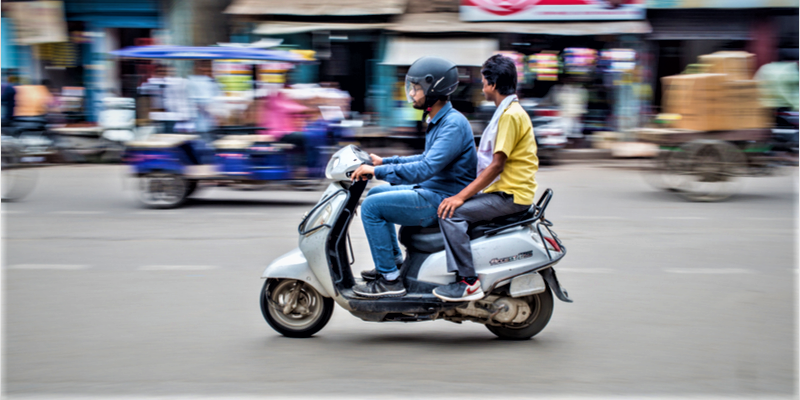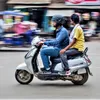
The Ministry of Road Transport and Highways on Tuesday added new clauses to the Motor Vehicles Aggregator Guidelines 2020, giving state governments a framework to allow bike taxis to operate white-plated motorcycles for shared mobility.
Under the new guidelines, state governments can issue permits to aggregators on a daily, weekly or fortnightly basis to allow authorisation for non-transport motorcycles.
The new guidelines come as a shot in the arm for aggregators, bike taxi drivers and riders in Karnataka after the state imposed a ban on two-wheeler taxis last month. According to reports, this has resulted in a rise in fares as well as traffic congestion in the state.
“By recognising non-transport motorcycles as a means of shared mobility, the government has opened the door to more affordable transportation options for millions, especially in underserved and hyperlocal areas. Aligned with India’s goals of sustainable urban development, the move will also help address pressing challenges such as traffic congestion and vehicular pollution, while expanding the reach of last-mile connectivity and hyperlocal delivery services,” a spokesperson for Rapido said.
.thumbnailWrapper{
width:6.62rem !important;
}
.alsoReadTitleImage{
min-width: 81px !important;
min-height: 81px !important;
}
.alsoReadMainTitleText{
font-size: 14px !important;
line-height: 20px !important;
}
.alsoReadHeadText{
font-size: 24px !important;
line-height: 20px !important;
}
}

On June 30, bike taxi drivers in Karnataka launched a statewide hunger strike in cities including Bengaluru, Mysuru, and Ramanagara, among others, to demand that the state government withdraw the ban.
According to reports, the Bike Taxi Welfare Association told the Karnataka High Court last month that the ban affected over six lakh families across the state.
Aggregators like Rapido, US-based Uber, and Ola Consumer, which offered options for bike taxis on their platforms, have since taken down the service to adhere to the state government’s ban.
“We welcome the release of the Motor Vehicle Aggregator Guidelines (MVAG) 2025 as a forward-looking step toward fostering innovation and regulatory clarity in India’s digital mobility sector. Timely adoption by states will be key to ensuring uniform implementation and building much-needed predictability for all stakeholders,” a spokesperson for Uber said.
Meanwhile, a report by Moneycontrol stated that traffic congestion in Bengaluru has spiked sharply since the ban came into effect on June 16.
The ban was implemented due to the lack of a clear regulatory framework for these services and amidst protests from auto unions against bike taxis, claiming that the service was eating into the revenue of auto drivers.
Moreover, commuters have also voiced concerns regarding the ban as they say it has made travel more expensive and also increased waiting times for other commuting options.
While the new guidelines act as a catalyst towards allowing bike taxis in Karnataka, these guidelines do not imply that the ban has been lifted. State governments can choose to adopt these revised guidelines within three months and can include additional provisions.
(The copy was updated with Uber’s comments.)
Edited by Kanishk Singh

